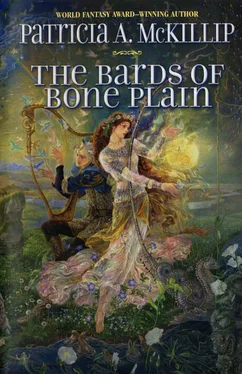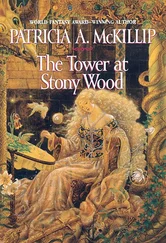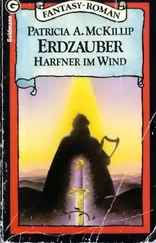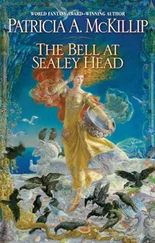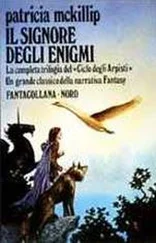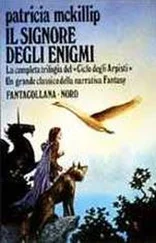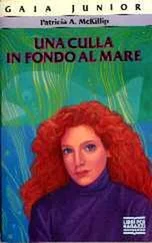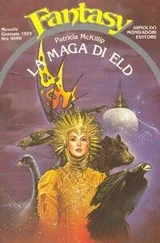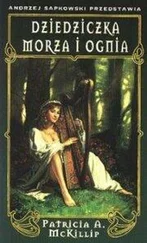“No,” he answered dazedly. “I believe I can work him into my schedule.”
He took a steam tram down the river road, spent some time wandering through the streets, following the music that seeped out of doorways, blew down piers, drew crowds on street corners. The music gave him a place to look, at least, gave his meanderings a pattern. Mostly, he moved on the assumption that if he kept Jonah in the forefront of his thoughts, Jonah would appear. Which was not at all hard to do, considering his own crack-brained suspicions. Sometimes, though, Sophy tugged at his thoughts, the vision of his unpredictable mother reading his scholarly paper in her dressing gown. And Zoe. What had she persuaded him to do? The last thing in the world he wanted ...
No Jonah in the cheerful morning light. On impulse, he walked across Dockers Bridge to look for his father down a hole. Or maybe asleep on a midden full of the previous century’s rubbish. Perhaps the princess would know.
Beatrice came up to talk to him, already grimy and sweating in the warmth. She took her straw hat off, fanned herself. He watched curly tendrils of gold, escaped from her ruthless pins, flutter around her face.
“He was here earlier,” she told Phelan. “He wanted to know if I’d seen Kelda before I left the castle this morning. Of course I hadn’t—I try not to see anyone when I’m dressed like this. That’s all your father said, really. He went off, and I went back down to dust my mantelpiece. I have no idea where he might have gone.” She paused, her cobalt eyes querying him through the mask of grit. “I’ve seen the way he looks at Kelda lately, during gatherings at court.”
“Yes,” Phelan answered tightly. “I think there’s something between them in their past, despite everything Kelda says. I’m trying to keep an eye on my father. I’m trying to understand.”
She put her hat back on, studied him under the shadow. “It makes no sense,” she breathed. “None of it. Kelda—he shouldn’t know what he knows. He couldn’t be as young as he says if he has a past with Jonah in it.”
“I don’t think he is.” Phelan slid one hand over his own face, to keep from telling her what he did think. He felt the sweat gathering at his hairline.
“If I see your father again, should I tell him that you’re looking for him?”
“No. He’d only try to hide from me.”
“Because you’d both be in danger, then.” Her mouth pinched a moment, then she loosed a breath gustily. “I do so want to help you look. If I get into trouble again, my mother will send me to my sister Charlotte’s home in the country to be influenced by children and apple orchards and cows. It would be maddening.”
He smiled, envisioning her among the apple blossoms in sedate country clothes, moodily tossing sticks to the dogs.
“A terrifying prospect,” he agreed. “But think how well you would learn to understand the Circle of Days.”
She thought about that, clamping her hat on her head to keep it from flying into the Stirl. “I suppose that’s where it began, isn’t it ... The language of endlessly repeating days ... Was the magic there from the beginning? Have we just forgotten it?”
“Kelda didn’t forget.” He shivered suddenly, there under the full noonday sun, as he glimpsed again strands of an impossible tale. The princess in her dungarees, coated like a sweetmeat with the dusting of centuries, watched him gravely.
“Tell me if I can help,” she said abruptly. “I can survive Charlotte and her circle of days.”
Can you? he wondered. Can any of us? He nodded wordlessly and turned toward the bridge again. He looked back once, found her still watching him. She gave him a little sidelong smile and turned. He watched her disappear step by step down the ladder into the earth.
He went back across the bridge.
The crowds had grown thick with musicians carrying their instruments, visitors come to listen to the legendary contest, everyone drawn in the midday maelstrom toward food and drink and company. He heard his own name called from an open tavern door; friends waved him in. He joined them, wanting food and some cheerful, mindless conversation. The tavern was so packed that musicians ate standing with their instruments dangling out windows over the water. No one talked of anything but the competition: what they would play or sing first, what bards of which great courts had been seen already in Caerau, what odds were being given where and by whom on who might take Quennel’s place. Kelda was the odds-on favorite, of course. But he was, after all, just a country bard out of Grishold, and who knew what amazements from other distant courts might be even now wending their ways to the city?
“Are you competing?” someone asked Phelan, and he remembered, with surprise, that he was. Pressed, he admitted to little preparation and less ambition to win; it would be something to tell his children when they started wondering if he had ever done anything remotely interesting with his life. He lingered there over his beer, listening to various musicians, caught again in the web of excitement, speculation, and song spun over the entire city.
When he walked back into the street finally, startled at the angle of light and shadow over the cobbles, he saw his father.
Jonah was walking upriver quickly and purposefully; he hadn’t seen Phelan. Phelan followed his undeviating path a long way, trying not to trip over instrument cases lying open on the side-walks, or careen into too many pedestrians. The crowds thinned past the docks. Jonah was easier to keep in sight, though if he glanced back, there were fewer bodies for Phelan to hide behind. He didn’t. Closer to the castle, where there were still random knots around visiting minstrels, and he could feel the cooler edge of the late-afternoon breezes flowing off the water, he saw his father finally veer from his determinedly straight path, go over the embankment, and down out of view.
Phelan quickened his pace, eased cautiously across the tree-lined embankment, and peered upriver from behind a trunk. Jonah was down on the tidal mudflats, leaving footprints in the muck. He veered again, as Phelan watched, toward a large pipe half-overgrown with brush, left from a time before sluices, canals, and newer water systems had shifted the shape of the ancient riverbed.
He vanished into the pipe.
Phelan groaned softly and slogged down to follow his father into the dark.
It’s at this point that Nairn’s footprints through history vanish again. What we can see, rising like tussocks across an indeterminate expanse of bog water, is the Circle of Days. The secret face, half-hidden within a hood, the three parallel lines, the middle one longer at both ends than the outer pair, in the ancient word for “bread” signals to those who recognize it from an astonishing array of unlikely places. Stamped into the hilt of a sword. An etching on the frontispiece of a book. Rosy cameos carved on both sides of a lady’s locket. Painted on the sign of a tavern calling itself The Wanderer. Another such sign hanging over a bakery. The oldest, most recently unearthed: a metal disk with the hooded face on one side, the cryptic lines on the other.
Whose face is it?
Who wore the disk?
What did it signify to the wearer?
Did Nairn look for those solid tussocks of something familiar and constant through the centuries, rooted as they were in his own past, and as long-lived? It seems likely. Within his own endless circle of days, little else was as immutable as this signal out of his youth. The original face might have been his. He might have discovered such a conclave during his travels, after he spoke to Argot Renne. Perhaps he revealed his history to those in it, and, even better, told them what he had learned of the secret powers they sought. Perhaps he founded such a group, trying to revive whatever powers he might have had, that had exhausted themselves or been taken away from him on Bone Plain. Perhaps, for a while, members of that occult group wore the disks to identify themselves.
Читать дальше
